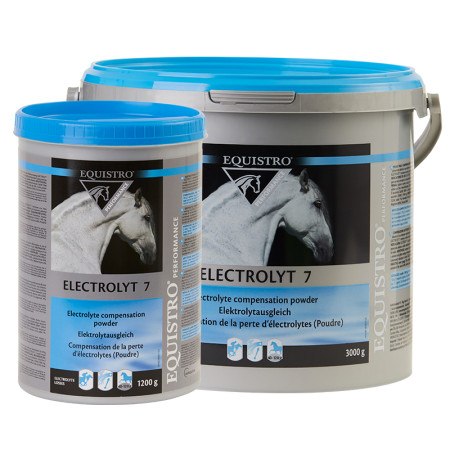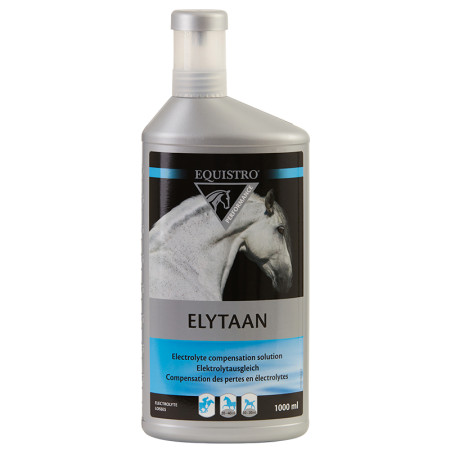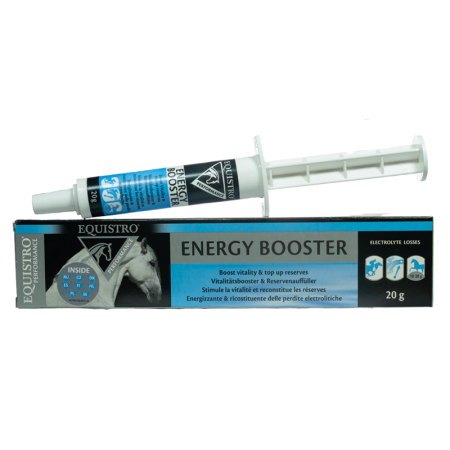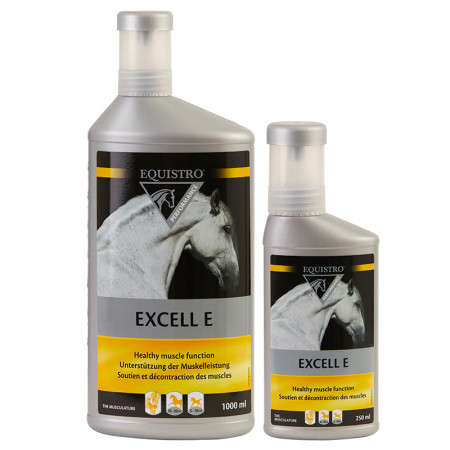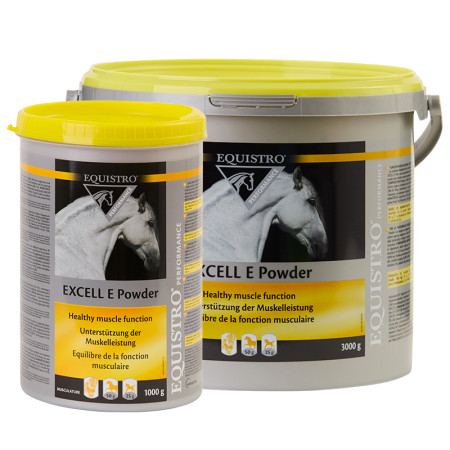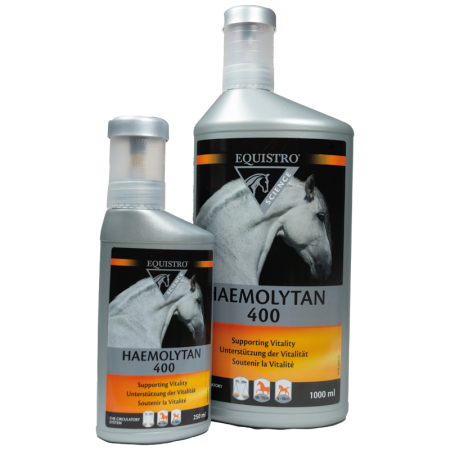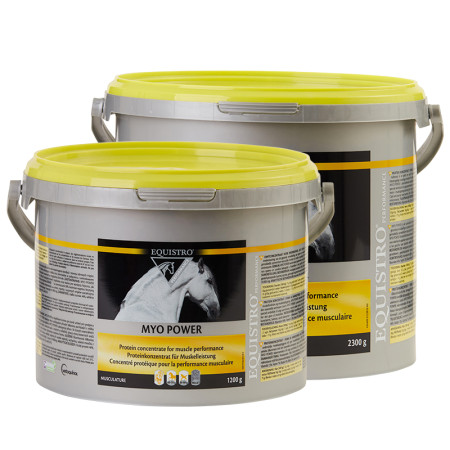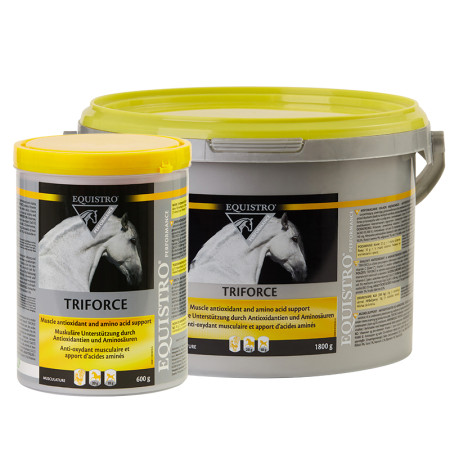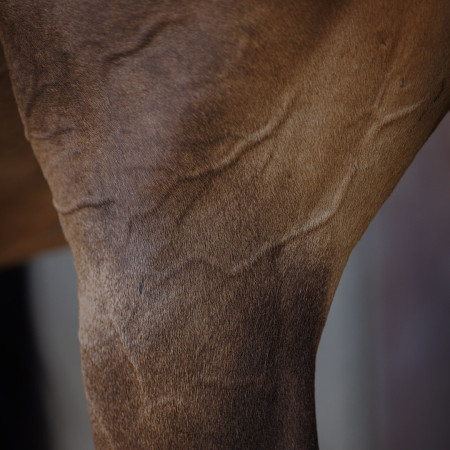
Feeding management in high performing horses
Horses with a heavy or very heavy work intensity have specific dietary requirements which need to be addressed by an adapted, specially balanced diet.
Body Condition Score (BCS)
High performing horses should have a BCS of 4 to 6 but not higher than 6 due to more load on the limbs and glycogen storage do not appear to increase with BCS. Furthermore, fat depos in the thoracic cavity could limit lung expansion.
Energy
Sport horses have an almost doubled requirement of energy compared to maintenance requirement (120-150 MJ / 28.7-35.9 Mcal) with an additional requirement of 30-40 MJ (7.17-9.56 Mcal) during competition (e.g., races, cross country course).
The first consideration in meeting the energy requirements should be optimization of roughage nutritional quality, which can provide a substantial portion of daily digestible energy intake (about 50% of the total DE requirements).
The decisive factor for performance seems to be that the enzyme activity necessary for energy turnover in the muscle are fine-tuned by a balanced training-feeding program so that energy is continuously available in sufficient quantities.
Protein
Protein requirements in athletic horses are increased compared to horses performing light work due to the anabolic muscle metabolism (5 g crude protein per MJ or 4.18 Mcal digestible energy) / 0.5-1 g / kg body weight).
Excessive protein intakes (high amounts of concentrated, easily digestible protein) can provoke adverse effects on acid-base balance by burdening the kidneys (excessive urine production), hindgut microbiota (hyperacidity), and possibly cause respiratory issues due to ammonia accumulation.
The decisive factor for building/renewing muscle protein is not the quantity but the quality of the protein (amino acid composition and concentration, digestibility). Easy pre-caecal digestible protein sources like short peptides can be absorbed quickly and nearly completely in the small intestine without overloading the bacteria in the hindgut and burdening the kidneys.
The most important amino acids:
- Lysine: First-limiting building block in muscle protein and precursor of L-Carnitine (important carrier for fatty acids into mitochondria)
- Leucin: Stimulation of mitochondria biosynthesis (precondition for powerful muscles and training supportive effect + basis for further muscle building)
- Arginine: can stimulate growth hormone release and promote increased lean tissue
Vitamins
Vitamins can, among other things, as components of important enzyme systems, have a decisive influence on the function of important performance-determining organs and tissue systems improving the performance of the horse.
Inadequate intakes of fat-soluble vitamins (A, D3, E, K) may occur in diets consisting of grain.
Temporary addition of vitamin C can be supportive for strengthen immune system and other organ systems (e.g., respiratory tract).
Supplementation with B-vitamins can be useful especially in cases of occurring inappetence after hard exercises (restore appetite) and are essential for blood formation and energy metabolism in the muscle.
Vitamin E plays an important role as antioxidant agent and additional supplementation should be considered if it is not well balanced in the basal diet.
Electrolytes / Water
Hard working horses have a substantially increased requirement for electrolytes (calcium, magnesium, sodium, chloride, potassium) and trace elements (iron, copper, selenium, zinc) due to exercise-related sweat losses. As the horse organism has no possibility to store electrolytes, a deficiency can result in reduced willingness to perform, muscle tension, hypersensitivity or even cramps.
As an indicator for evaluating the level of supplementing electrolytes, the sweating score can be used depending on the loss of sweat of the horse.
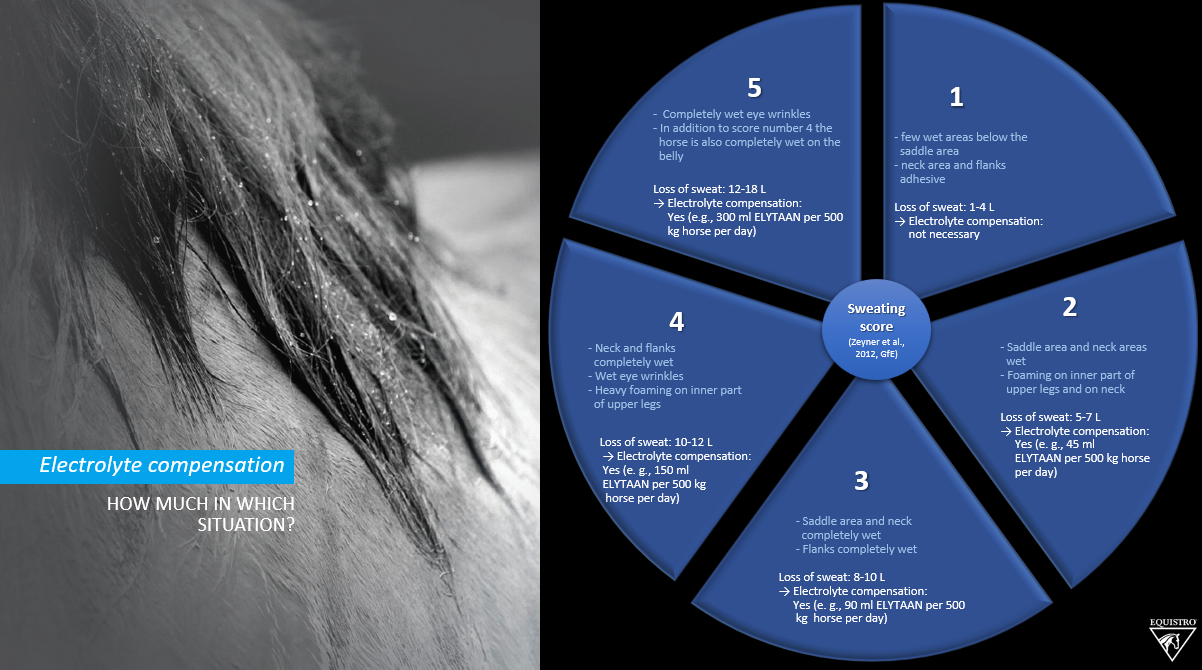
Combined oral water and electrolyte supplementation after exercise can enhance the rate of muscle glycogen resynthesis whereas large volume water intake directly post exercise can delay rehydration.
The water intake of performance horses should be 40 – 90 Liters depending on the amount of sweat loss.
Feeding requirements and techniques
Roughage
High amounts of roughage (1.5 – 2% of body mass) are essential for physiological digestion and contribute about 50% of the total digestible energy. Furthermore, the increased chewing activity can reduce restlessness and nervous behavior as well as prevent disorders in the digestive tract (caecum acidosis, low appetite, decreasing B-vitamins synthesis, increased risk of gastric ulcers). Excessive amounts of roughage increase the weight of the horse (filling of the digestive tract).
Concentrate
Diets high in starch not necessarily increase muscle glycogen concentrations. Roughage stays main source of energy for horses due to limited ability of utilizing large amounts of non-structural carbohydrates (starch) in a manner that would allow glycogen synthesis as rapidly as in humans. Daily concentrate intakes should be divided into meals of less than 1.5kg per meal. To reduce the starch content of the daily ration, the overall energy intake also can be increased by adding up to 10% of oil.
Supplements
- Electrolytes should always be supplemented (together with water) at least after competition
- Vitamin E & selenium play important roles as antioxidant agents and additional supplementation should be considered continuously in sport horses
- Vitamin C can be supportive due to its antioxidant effects; supplementation can be useful especially in racehorses, endurance or eventing horses
- Lysin can be helpful for quick muscle recovery and rebuilding after high efforts
Dr. med. vet. Caroline Fritz

